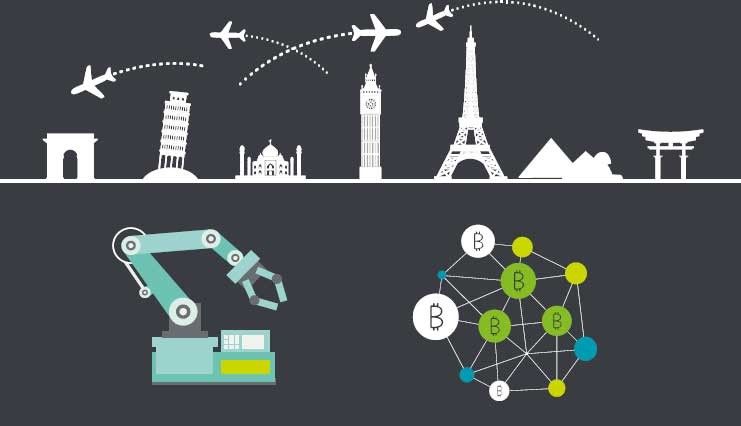From AI to cryptocurrency, the 2018 World Travel & Tourism Council (WTTC) Global Summit has focused on the technology that will drive the future of travel.
A report from Deloittes notes that the industry has “reaches unprecedented size and momentum” as disposable income increases across the world.
Technology is seen as a key factor in this growth and the report pinpoints five major areas that will shape the future of travel:
- Artificial Intelligence. “Touted as the new electricity, AI is the power behind many emerging technology platforms,” says the report. These range from the creation of smarter virtual assistants to big data techniques. Travel websites ‘learn’ how to give more personalised results while chat platforms improve service. Although AI has a long way to go, it will undoubtedly be a huge player in the future, says the WTTC.
- IoT. Connected sensors, devices and machines can create a new form of dialogue with the ‘real’ physical world. IoT has huge implications for airlines but also for hotels where smart home technology can provide some of the largest improvements to the travel experience of the future. On the downside, cost is still an issue, as are concerns around cyber-security.
- Voice Technology. Close cousin to AI, voice interactions are already being seen as the use of digital home assistants multiply. 2018 is the first year a major hotel installed AI assistants in each of its rooms. Meanwhile search-shop-buy behaviour will shift as travel booking brings in more conversational exchange. Although voice technology is still in its infancy, heavy investment will create large leaps forward.
- Automation/Robots. A mix of hardware and software platforms will increasingly digitise tasks, eventually taking most humans out of the equation. This is mainly being seen in transportation with a widespread push towards driverless vehicle technology. Workforce automation could affect 1 in 10 of the global workforce.
- Blockchain. The technology that lies behind cryptocurrency is of increasing interest to the travel industry, as companies look for solutions to streamlining online distribution. Blockchain was a priority topic at Davos World Economic Forum, say McKinsey, with an estimate that 10 percent of global GDP will be stored on blockchain by 2027. The WTTC sees blockchain as a possible disruptor in travel – speculating that, while it may not yet put travel brands out of business, it may well force many to adjust their business models.
Technology trends in visitor attractions are roughly in line with the ones identified by Deloittes for travel.
We have seen Alibaba’s robot waiters, Disney’s stuntronics and HIS plans 100 robot hotels by 2021. Meanwhile Convious’ dynamic pricing AI code for SEA LIFE Scheveningen allows visitors to chose what they pay for tickets and has delivered a significant increase in online ticketing revenue.
Image: Deloittes













